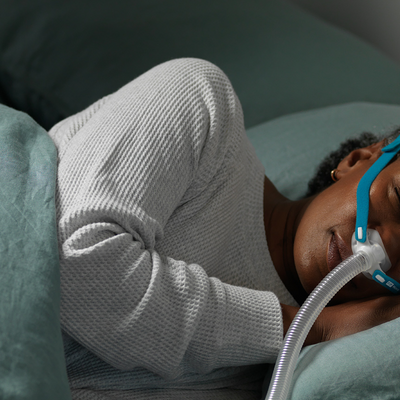Sleep apnea increases the risk of cardiovascular conditions when untreated. CPAP therapy can help reduce those risks.[1] These were the findings of a 2021 study by Diego Mazzotti et al.
Their study highlighted to cardiovascular risk associated with moderate to severe sleep apnea:
- Those with untreated sleep apnea were 71% more likely to experience stroke, myocardial infarction, unstable angina, heart failure or cardiovascular death than the control group.
- This same risk is 32% - 44% lower for those with sleep apnea who are using CPAP therapy.[2]
Lead Author Diego Mazzotti said “Our study contributes to understanding the role of CPAP therapy for cardiovascular risk prevention. We found the effects of CPAP were stronger in patients with moderate to severe sleep apnea, as well as in patients who used CPAP, on average, greater than 4 hours per night.”
In summary: 4 hours of CPAP therapy.
His final point about the impact of CPAP use over 4 hours is an important one. In previous studies, researchers have called into question the impact of CPAP therapy on cardiovascular outcomes. However, in a review by Noah et al, researchers found that many of the previous studies did not control for CPAP compliance. Their findings suggest that use of a CPAP over 4 hours leads to study participants reducing risk of cardiovascular disease.[3]
Put simply: Sleep apnea increases the risk of heart disease. CPAP therapy can reduce those risks. However, patients actually need to successfully use CPAP therapy to reduce those risks.
This has helped guide Lofta’s focus on supporting clients in the initial year of therapy – compliance drives health outcomes and support in the first year has been shown to increase compliance. So, if you are new to CPAP therapy or you’ve become noncompliant, reach out to Lofta -- we’re here to help.
-----
Sources
[1] – Noah WH, Cook JL. “Using CPAP” Improves Cardiovascular Outcomes: Physicians Must Look Behind the RCT Veil and Focus on Long-Term Adherence. J Cardiol Clin Res. 2021;9(1)
[2] – https://www.sleepreviewmag.com/sleep-treatments/therapy-devices/cpap-pap-devices/treating-sleep-apnea-cpap-lower-risk-heart-problems/
[3] – https://www.itamar-medical.com/articles/cpap-and-cardiovascular-outcomes/

















